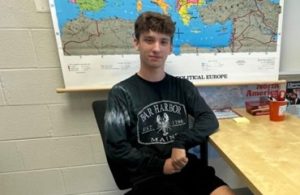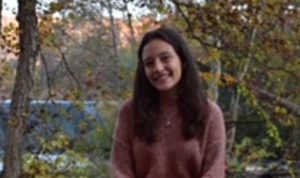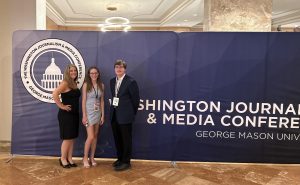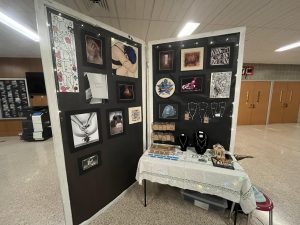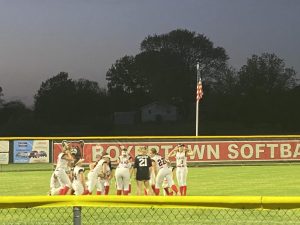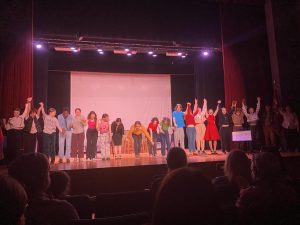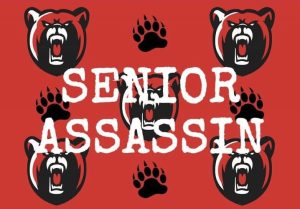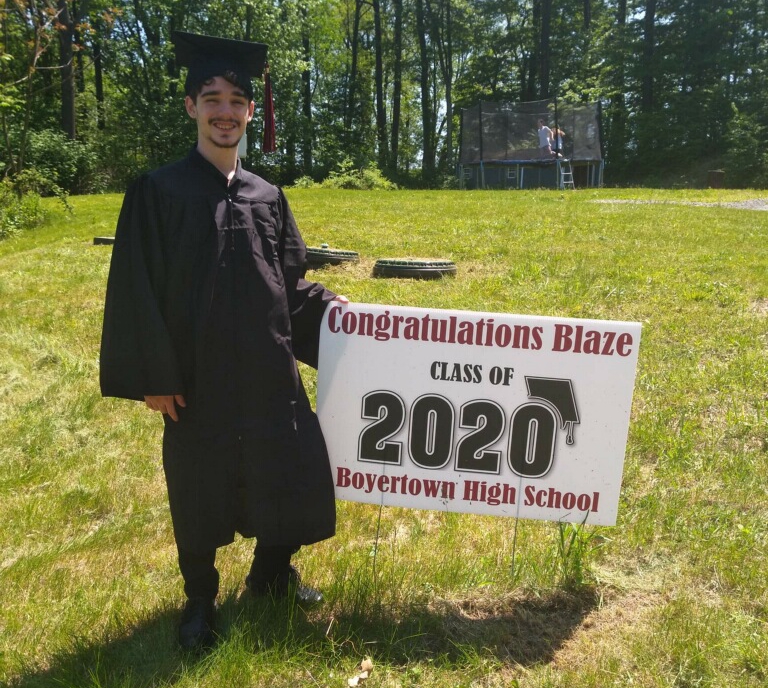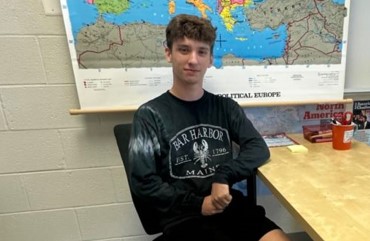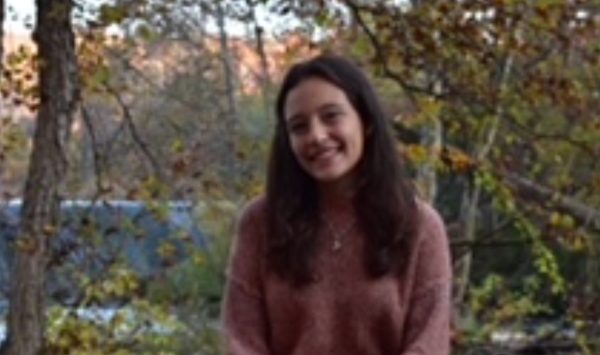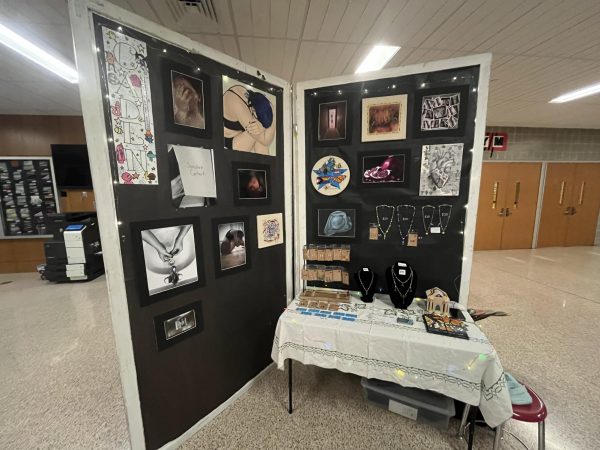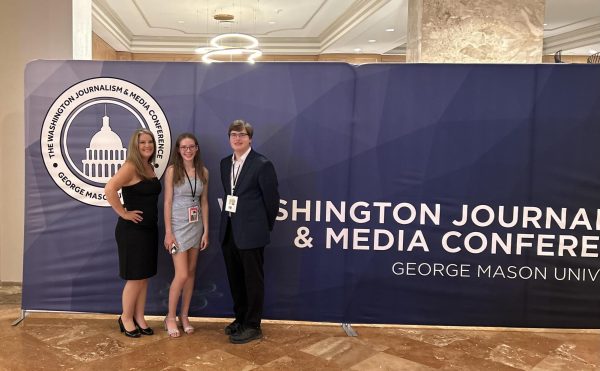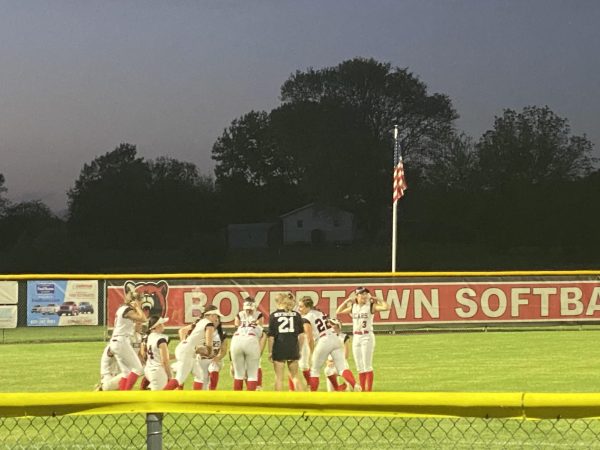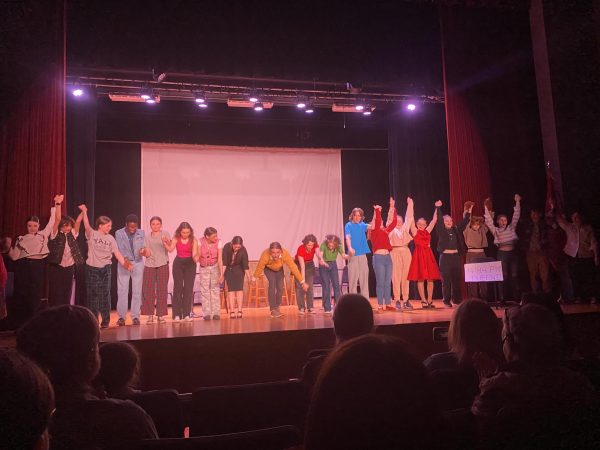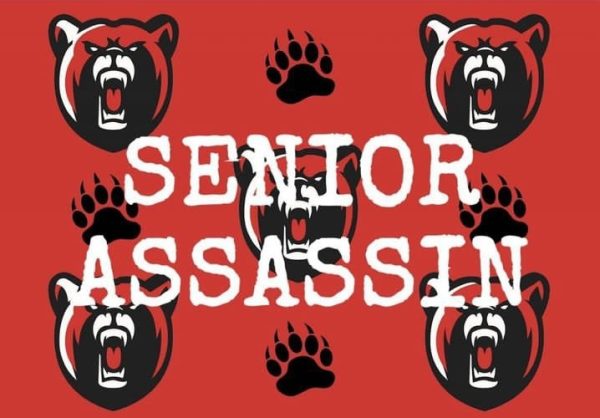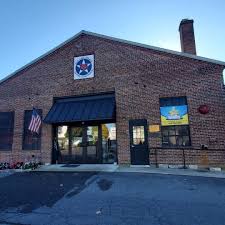Senior Spotlight: Blaze Myers, Opinions Editor
Blaze Myers, a senior of the Class of 2020, served as the Cub Opinions Editor this past year.
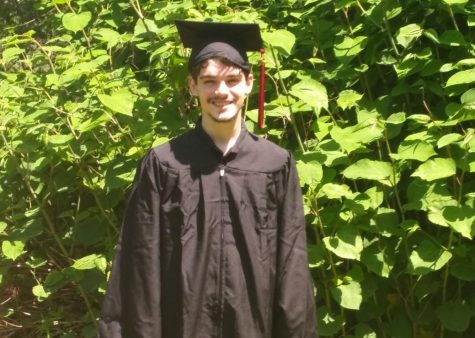
As the school year draws to a close all over the country, BASH will be losing a significant amount of good people with graduation. Blaze Myers, who served as Cub‘s opinions editor this past year and had leadership positions in Accent, the creative writing magazine, and Debate Club, which he helped found, will leave a large vacancy behind him that will be difficult to fill.
Self-described as a dedicated worker, he is no stranger to pushing himself to his limit. Prior to the school closure, he did a lot within the school and Cub, which he joined more on a whim.
“I joined Cub because of my prior work with the newspaper last year with my opinion piece surrounding the President,” Blaze said. “I knew I had that writing potential within me, so I figured I could definitely benefit the club, and from insistence from one of the members of the organization, I joined.”
Seeing the Opinions section of Cub sorely lacking updates, Blaze took it upon himself to contribute as much as he could. As opinions editor, he had a lot of fun while also growing as a debater.
“Opinions are pillars of who you are. Our respect for someone oftentimes stems from the opinions they hold, whether it’s political or social,” he said. “I believe opinion pieces show more of who I am than any sort of pieces written by anyone else, unless they were also opinion pieces. That’s not to devalue other types of articles — which take so much more effort in different ways — but opinion pieces are definitely more of the writer than any other sort of article.”
He enjoyed the “relaxed” first period of Cub, which he used to research and discuss with other members, further enriching his opinion pieces. Throughout the year, he was awarded thirteen Best of SNO honors for various articles, as well as a second place in the state-wide Keystone Media Awards. His only regret is that his schedule switched to gym first period for the second semester.
“It was just nice, it felt like I could just let all my opinions out which I like to. I could also educate myself further so that these opinions kind of fleshed themselves out, and also people got to read them,” Blaze said. “I reached a level where I would do research for each of my political views, and this helped me flesh out my views so they were strengthened. This turned me into a better debater, and made me more politically aware. It was kind of cool to be recognized.”
His best opinion articles, he feels, are the ones centered on Greta Thunberg. Other articles, such as his first COVID-19 one, could become “outdated” and “display ignorance.”
“My Thunberg pieces, I wrote two — about the environmental importance of what people think of her in the first, and about feminism with the second one — and these two concepts are gonna be sticking with us for the next few decades at the very least,” Blaze said. “So these articles that are gonna stick and make it through time and hold that importance from hereon into the future, I think that they are my best pieces.”
Outside of opinion articles, he feels that he learned a great deal. Writing his first piece, a non-opinion article, he said, “pertained to essential information” and took two weeks to write and lots of research. Beyond that, it taught him valuable life skills.
“My interviews taught me how to interact with people, I feel like that’s an essential skill for any journalist,” he said. “It’s unique to be conducting an interview. That was a sort of thing that I needed experience with, which I had none. It’s not like an opinion piece, where it’s just me talking about my own opinion; it’s trying to translate someone else’s thoughts into an article. ”
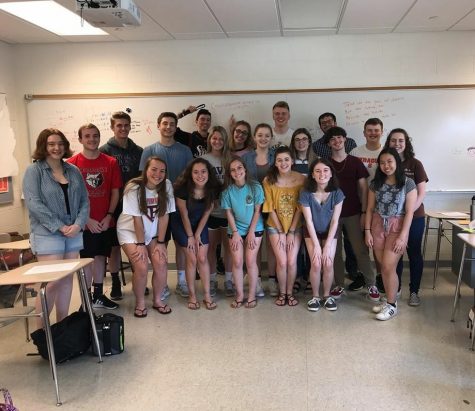
The skills he cultivated within Cub helped him in his other clubs, where he also had great success. As Vice President and co-founder of Debate Club, as well as participating in the TV discussion club Insight, Blaze utilized his debate skills and grew the clubs.
“Debate Club truly did function as what I believed in,” he said. “Debate Club went from not existing last year to being a club with 30 plus people, which I believe is another strong feat indicative of my dedication along with the other officers.’ The research of my opinions usually were about relevant topics in the news in the moment, so those were usually topics that we were discussing in Debate Club.”
However, his most influential club, the Accent, experienced its own feats in his time. Last year, the creative writing magazine was awarded a grant which enabled the magazine to have a color cover for the first time ever. Holding the position of President and Editor of the Accent, Blaze feels it was an, “instrument of my ideals.”
“I was a much more in-your-face President than the Presidents I had, which I suppose was an action necessary due to how many newcomers we had; whereas, in my time before I was President, it was all people who knew each other and worked well together,” he said. “Accent represents what I want to achieve as a writer. We were a group that liked to help each other write, teach each other techniques, and also just appreciate quality writing, so I felt that it definitely captured the writer in me.”
With two years of magazines under his belt and another under production, he says that he is, “very proud of those, they’re all manifestations of the club’s work of creativity and quality prose.” Creative writing in general has a very profound impact on him.
“Without creative writing there is a certain dullness to life. Everything becomes so assorted without creativity present in your writing, so many things are so dull to read,” Blaze says. “I aim to experiment with whatever genre I’m working in, I’m a poet at heart. Poetry just heals me, I like to write because it rolls off the tongue, whereas a creative story is something to ponder and think about.”
One of his favorite books, Dante’s Inferno, an epic poem written with “language that’s a little difficult to always read and sit through,” showcases some of the technique he’d love to incorporate into his own writing.
“It’s a super strong story which relays the political and religious beliefs of Dante, which I find really interesting,” he said, “because it is a creative story in the sort of way of him being able to depict his political foes and whatnot in these clever images and ways. It showcases what you can do with creative writing, how it can be relevant to the politics at the time, and yet still, throughout the centuries for Dante, it can remain relevant in literature.”
His involvement with the school didn’t end at clubs, however. Blaze ran track for four seasons at BASH, with an additional year of track and field before he moved into the district in tenth grade. In track, he was a short-distance sprinter, which means he did sprints ranging 60-100m during the winter season and 100, 200, and 400 meters during the spring season. His favorite event was the 4×4 relays, and his favorite memory came from the freshman/sophomore relay.
“The freshman/sophomore relay — it was a tough period of time, it was my first year at BASH. So it was a really cool bonding experience,” he said. “We hung out under the bleachers and had a lot of fun. A particular highlight of the event was one of the throwers throwing a javelin at a wasp nest.”
Moving into the district was a big change for Blaze, who grew up in Philadelphia. However, moving itself wasn’t the biggest issue; he has moved four times that he remembers. Going from an apartment to his grandma’s and then to a row home before finally moving to Boyertown, there was a bit of a culture shock to adjust to.
“When you live in a city, you live next to people. After the apartment, I lived in a row home, my neighbor — I could hear them through the walls. So it’s just a different experience,” he said. “I lived next to the boulevard; it was always loud, lots of cars, lots of accidents. It’s a lot less subtle experience than where I live now. I live on a hill, like 300 feet away from my nearest neighbor. I lived here three years and I don’t know my neighbors at all, whereas I used to know my old neighbors pretty well; I was best friends with my one neighbor.”
His earliest memories are from the apartment, when he must’ve been four to six years old.
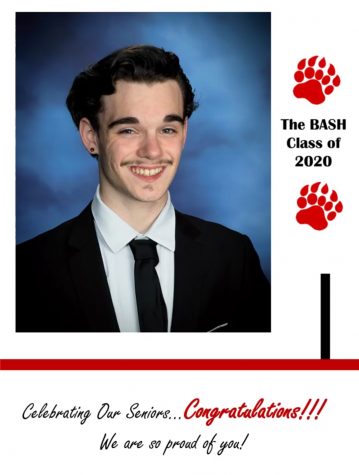
“It was this huge apartment across from this ShopRite, and there was a big highway, and the highway seemed so huge to me at the time, but my mom tells me it wasn’t that big,” he said. “After that, I remember moving to my grandmother’s, and she lives in the same home so its easy to remember. It’s a place of warmth and it’s a really important place to me.”
Moving to Boyertown was unique and a stark contrast to what he was used to, but very little of it was negative. His more “domestic challenges,” he said, was centered around not being able to walk to school or to the town, but that there was very little violence in the area so he didn’t worry as much about carrying too much money. His biggest challenges stem from difficulties with transferring credits, as well as more personality differences with those around him.
“I went from the heart of Philadelphia to what felt like hick town, but I kind of grew to it. The culture was kind of small in the actual school, but it was a lot bigger in the actual setting of the town. I would imagine that the only difficulties were cultural differences, as moderate as they might be. My parents particularly struggled with this, cause my mother is very Philadelphia, and I kind of have some of those [traits] too,” he said. “[After moving] I am terrible at maintaining relationships, I see the importance in it,but I struggle at it. A big thing that I’m struggling with right now is keeping in contact with people from high school; I’m trying my best, but it’s really easy for me to go months without talking to someone.”
Another issue Blaze struggles with is his diagnosed bipolar disorder. The disorder itself is plagued by many misconceptions, particularly about how “people can just go off at a whim.”
“And that’s not exactly true, the changes are kind of gradual and the periods last a long time,” he said. “I struggle with — it’s a bit of an understatement — but very intense mood swings, they’re known as manic and depressive states. Every mental illness has its struggles, every single one, but bipolar is like dealing with two issues at once. Bipolar leads to many lapses in judgement. I don’t like to view that as a core asset of my personality, no one really knows that I’m bipolar.”
While he struggles with mental illness, he is also inspired by a vast many things, including his friends and teachers. Some of his favorite TV shows include Law & Order and Game of Thrones, and his favorite artists are all from the punk rock genre: the Clash, the Ramones, the Rancid, Reel Big Fish, the Operators, Operation Ivy, the Interrupters, and Street Dogs. They’re his favorites for the political messages present in the content.
“I’m really inspired by what I consume, I think everybody is. I’d like to imagine I take the good aspects of the TV and stuff I watch and use it for creative reasons, to inspire creativity within me and motivation. Oftentimes I’m inspired by the people around me, too. My teachers inspire me and motivate me, and my friends, too,” he said. ” I make a lot of videos with my friends, they’re a big part of my creative process. I like to make videos for the school, I took telecom classes, and to make videos you need people. And while I like putting myself in front of the camera, I much prefer being behind it and editing it.”
His biggest inspiration is his English teacher Mr. DiLanzo, who he’s had as a teacher for two years now, but has known him for three through the Accent. Mr. DiLanzo taught Blaze’s favorite classes — AP Lang and AP Lit, which he loved for the ability to learn how to argue and use language to convey it, as well as the literary elements of analyzing poetry and rhythm and meter.
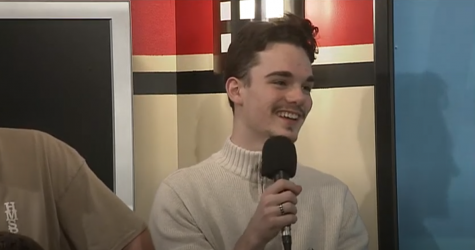
“Hes an incredibly inspiring individual; it’s kind of universal that if you have DiLanzo, then he’ll be a bit quirky, but hes also a very good teacher who cares a lot about everyone,” he said. “He really knows about what hes talking about, and I know that’s a generic thing to say about teachers, but he’s invested in what hes talking about and hes trying to teach people so that they can talk to him about these great works and look at them in the same way he does, it’s just really inspiring. I know I’m not on his level, but I definitely feel like I’m reaching this level of English comprehension that allows us to have these good conversations.”
The actual act of graduating has proven to be “anticlimactic” for Blaze in the wake of COVID-19, but he will always remember the time he had at BASH.
“I feel like no matter what school you go to, you’re gonna have some special relationship with it,” he said. “I had very personal relationships with some of my teachers, they were all really good teachers. I’ve never had a bad teacher at BASH, and I think that’s really important.”
He’ll miss many aspects of the school, and some not so much.
“I’ll miss TV news, I’m gonna miss Mr. C; I like to make videos. My senior and junior year felt really fun and almost unhinged because of the freedom granted by telecom. I could make videos and I had those to look forward to,” he said. “Making the videos for telecom are probably what i looked forward to the most. It was really exciting to go around school with a camera and make a fool of myself. I will not miss the banana hallway.”
He advises students to “be in the know” and to not waste time, because it goes by much faster than they might realize.
“I’ve only been in Boyertown for 3 years, but it felt like a very long 3 years. It doesn’t feel long until after the fact; going through it, it feels like weeks go by incredibly fast. Take them seriously, don’t postpone whats making you anxious; tests, studying, some of it you have to take head on,” he said. “Ask your teachers questions, ask your counselors questions. I was really ignorant my whole sophomore year simply because i didn’t ask questions. Ask questions to find out what you’re interested in. There are a lot of really cool things that I could’ve done, like YAG, like FBLA.”
Blaze plans to pursue a bachelor’s degree in finance at Bloomsburg University in the fall, looking to also double-major in political science. After Bloomsburg, he plans to go to law school, as he really wants to be a financial attorney. With a background that let him see urban poverty and a want to do good wherever he goes (evident in his charity work at the school, from the Running of the Bears to other volunteer opportunities he took part in), Blaze aims to help people with his career. After law school, he hopes to enroll in a two-year Master’s program, and Cub wishes him the best with all future endeavors.
“I wanna help financially impoverished people, I wanna guide people into the right place, I wanna take them out of tough situations,” he said. “I want to stop perversions as much as I can. I’m from Philadelphia, I saw a lot of poverty; I have a first-hand experience with what poverty looks like — and that’s just urban poverty. There’s rural poverty too, a completely different breed of monster, but it’s the same issue. No matter where I go, I want to eliminate this issue as best as I can.”
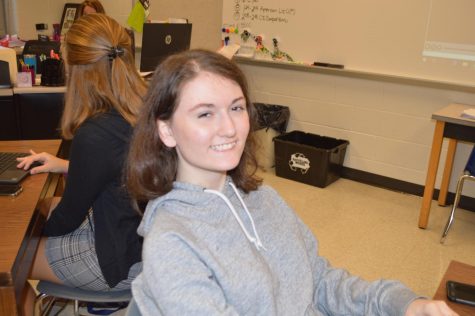
Jocelyn is a graduate of BASH. She served three years in the CUB and she previously wrote for the East Observer. She was in many clubs, such as SADD, Stage...
